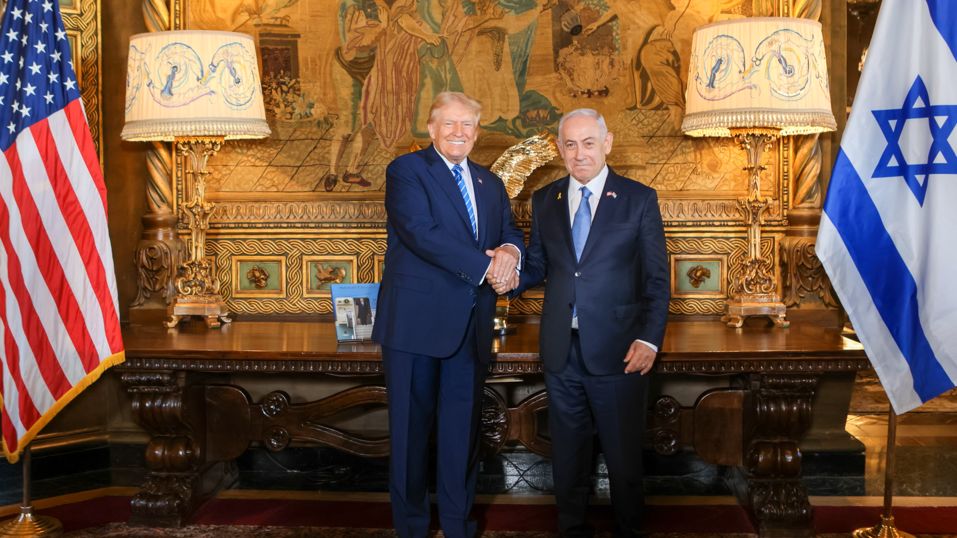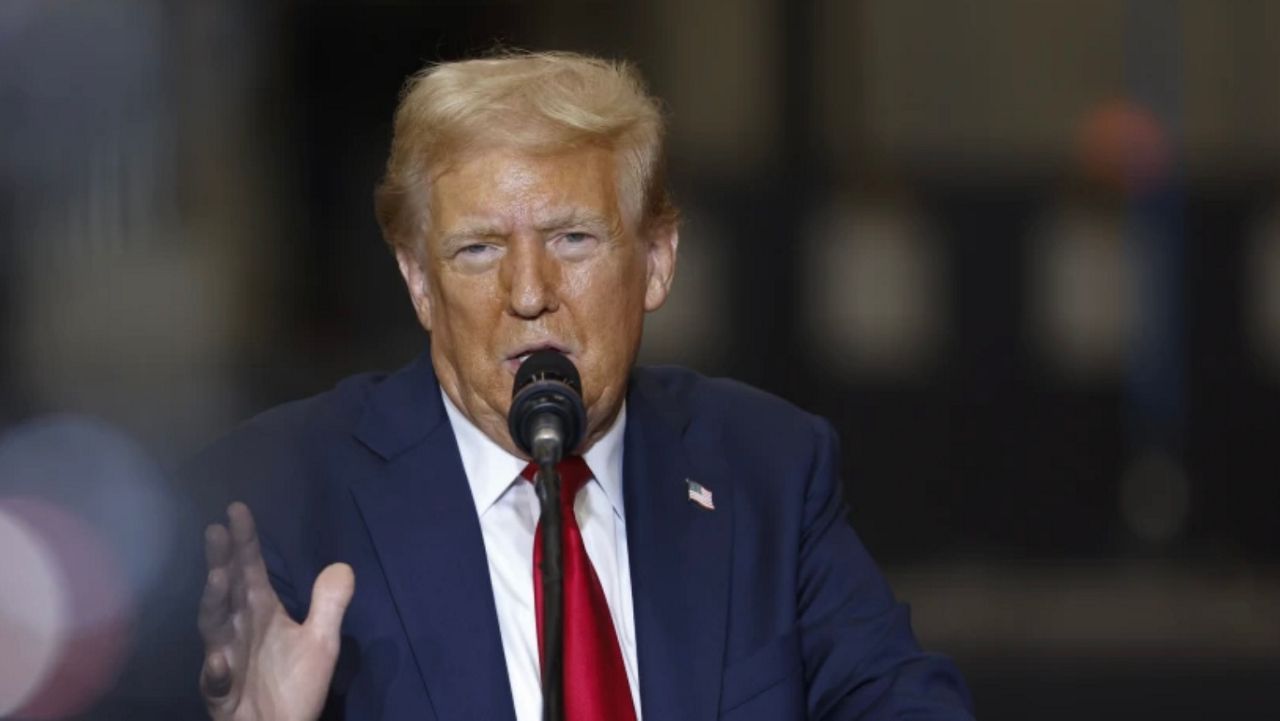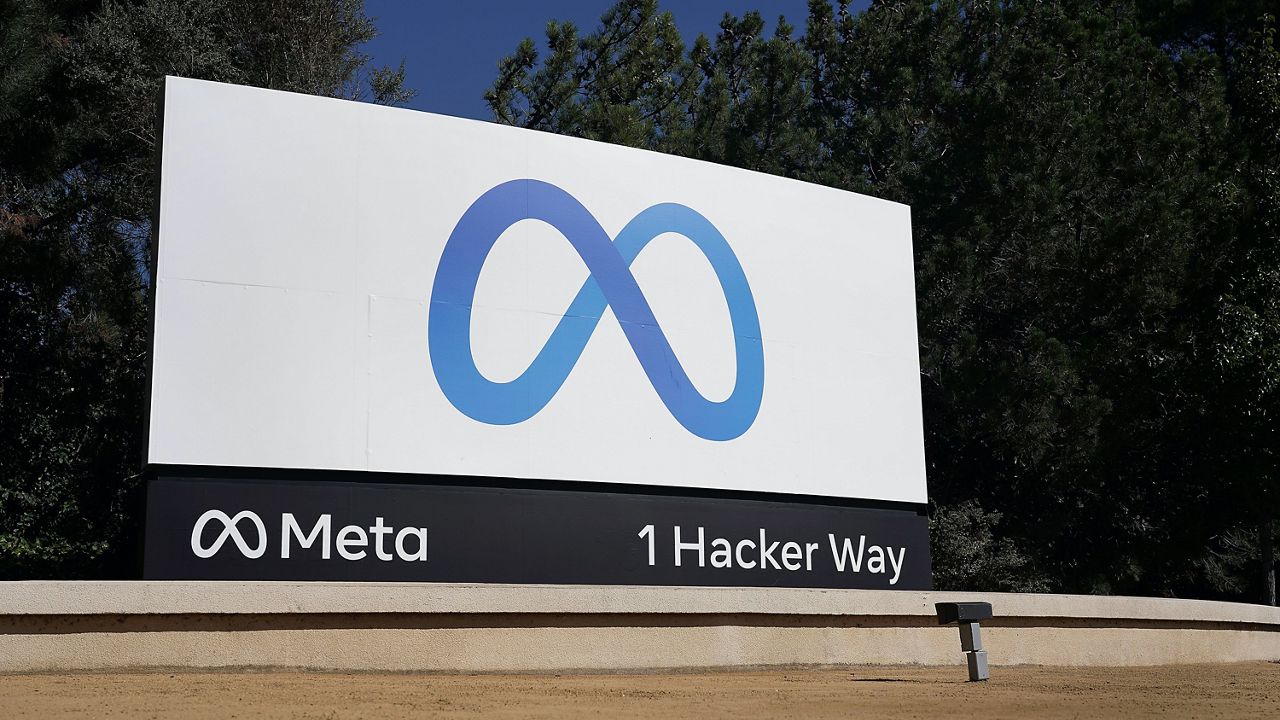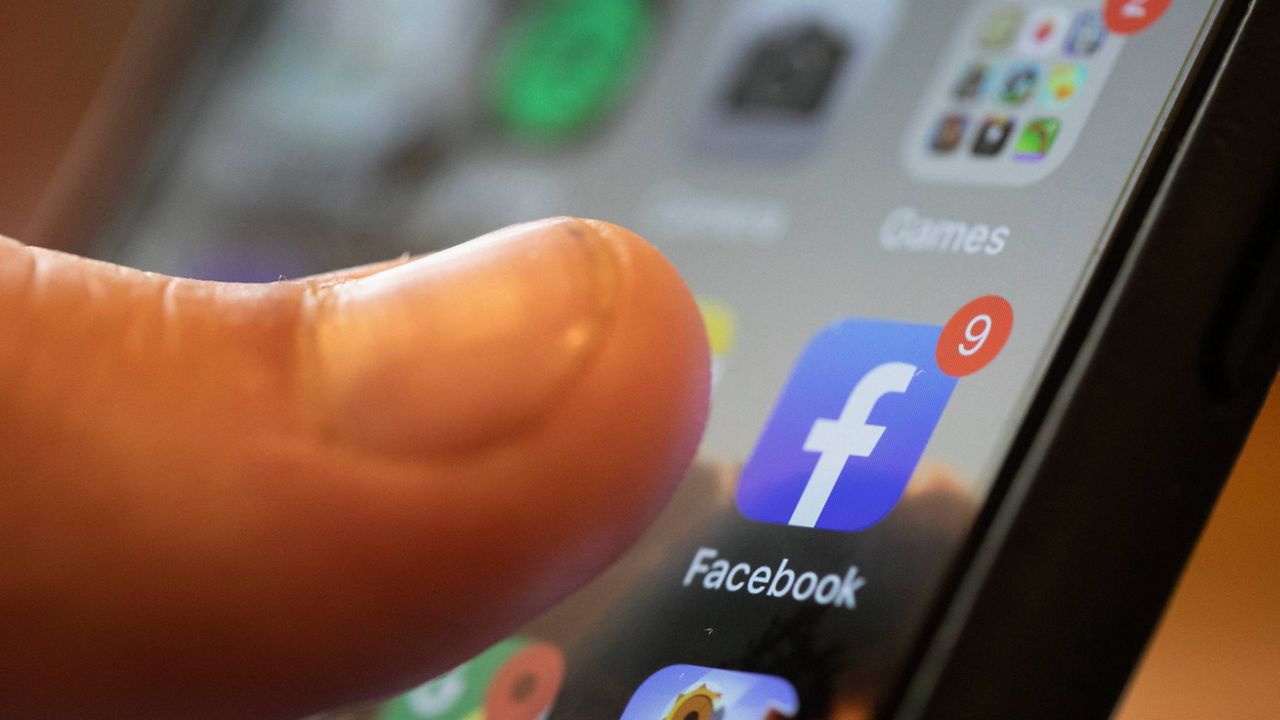Former President Donald Trump met with Prime Minister Benjamin Netanyahu at his Mar-a-lago resort in Florida on Friday, capping off a week for the Israeli leader that included meetings with President Joe Biden and Vice President Kamala Harris, the Democratic presidential frontrunner, and a speech to Congress that sparked protests across Washington.
The meeting came the same day that Biden administration officials said that Israel and Hamas have reached the framework of a hostage release and cease-fire deal.
What You Need To Know
- Former President Donald Trump met with Israeli Prime Minister Benjamin Netanyahu at his Mar-a-lago resort in Florida on Friday
- The meeting caps off a week for the Israeli leader that included meetings with President Joe Biden and Vice President Kamala Harris, the Democratic presidential frontrunner, and a speech to Congress that sparked protests across Washington
- It came the same day that Biden administration officials said that Israel and Hamas have reached the framework of a hostage release and cease-fire deal
- The leaders largely discussed Trump's Israel agenda during his first White House term, per the Republican's campaign
The leaders largely discussed Trump's Israel agenda during his first White House term, per a release from the Republican's campaign.
"Prime Minister Netanyahu thanked President Trump and his Administration for working to promote stability in the region through, among many historic achievements, the Abraham Accords, moving the United States Embassy in Israel to Jerusalem, recognizing Israeli sovereignty over the Golan Heights, eliminating Qasem Soleimani, ending the horrific Iran Nuclear Deal, as well as combatting anti-Semitism in America and abroad," Trump's campaign said in a readout of the meeting.
Trump also pledged, per his campaign, to stand with Israel after the Oct. 7, 2023, attack that killed 1,200 in the country and sparked the war, and vowed to stop antisemitism "from spreading throughout college campuses across the United States."
For Trump, now the Republican presidential nominee, the meeting could cast him as an ally and statesman, as well as sharpen efforts by Republicans to portray themselves as the party most loyal to Israel.
That's as divisions among Americans over U.S. support for Israel's war against Hamas in Gaza open cracks in what has been decades of strong bipartisan backing for Israel, the biggest recipient of U.S. aid.
For Netanyahu, who was in the United States to address Congress and meet with Biden, repairing relations with Trump is imperative given the prospect that he may once again become president of the United States, Israel's main arms supplier and protector.
For both men, Friday's meeting at Mar-a-Lago will highlight for their home audiences their depiction of themselves as strong leaders who have gotten big things done on the world stage, and can again.
One political gamble for Netanyahu is whether he could get more of the terms he wants in any deal on a Gaza cease-fire and hostage release, and in his much hoped-for closing of a normalization deal with Saudi Arabia, if he waits out the Biden administration in hopes that Trump wins.
"Benjamin Netanyahu has spent much of his career in the last two decades in tethering himself to the Republican Party," said Aaron David Miller, a former U.S. diplomat for Arab-Israeli negotiations, now a senior fellow at the Carnegie Endowment for International Peace.
For the next six months, that means "mending ties with an irascible, angry president," Miller said, meaning Trump.
Trump broke off with Netanyahu in early 2021. That was after the Israeli prime minister became one of the first world leaders to congratulate Biden for his presidential election victory, disregarding Trump's false claim he had won.
"Bibi could have stayed quiet," Trump said in an interview with an Israel newspaper back then. "He made a terrible mistake."
Netanyahu and Trump last met at a September 2020 White House signing ceremony for the signature diplomatic achievement of both men's political careers. It was an accord brokered by the Trump administration in which the United Arab Emirates and Bahrain agreed to establish normal diplomatic relations with Israel.
For Israel, it amounted to the two countries formally recognizing it for the first time. It was a major step in what Israel hopes will be an easing of tensions and a broadening of economic ties with its Arab neighbors.
In public postings and statements after his break with Netanyahu, Trump portrayed himself as having stuck his neck out for Israel as president, and Netanyahu paying him back with disloyalty.
He also has criticized Netanyahu on other points, faulting him as "not prepared" for the Oct. 7 Hamas attacks that started the war in Gaza, for example.
In his high-profile speech to Congress on Wednesday, Netanyahu gave recognition to Biden, who has kept up military and diplomatic support for Israel's offensive in Gaza despite opposition from within his Democratic Party.
But Netanyahu poured praise on Trump, calling the regional accords Trump helped broker historic and thanking him "for all the things he did for Israel."
Netanyahu listed actions by the Trump administration long-sought by Israeli governments — the U.S. officially saying Israel had sovereignty over the Golan Heights, captured from Syria during a 1967 war; a tougher U.S. policy toward Iran; and Trump declaring Jerusalem the capital of Israel, breaking with longstanding U.S. policy that Jerusalem's status should be decided in Israeli-Palestinian negotiations.
"I appreciated that," Trump told "Fox & Friends" on Thursday, referring to Netanyahu's praise.
He didn't quiet his criticism, however, of Israel's conduct of the war, which has killed more than 39,000 Palestinians.
"I want him to finish up and get it done quickly. You gotta get it done quickly, because they are getting decimated with his publicity," Trump said in Thursday's interview.
"Israel is not very good at public relations, I'll tell you that," he added.









